OU professor contributes to international study on how global warming affects glacier-fed river ecosystems
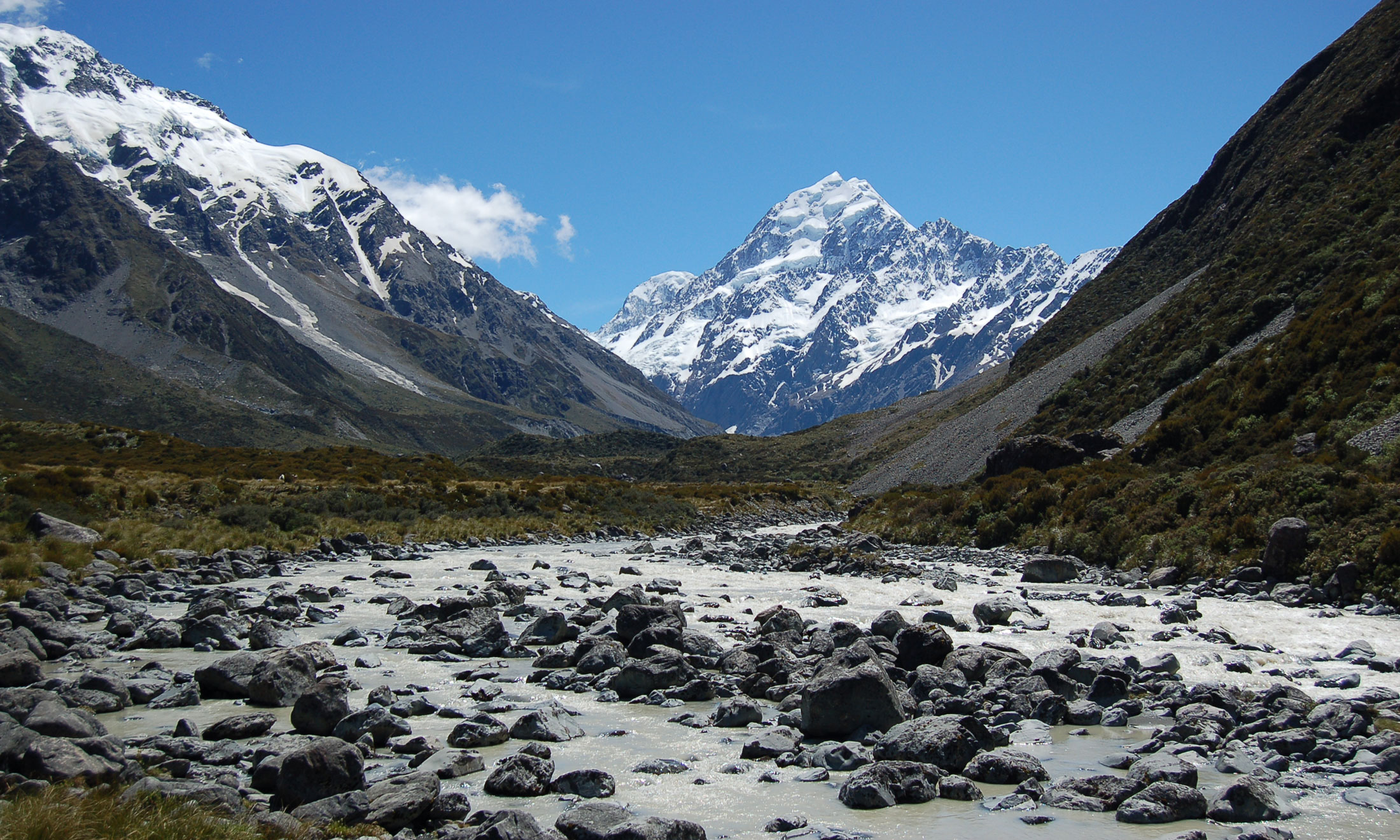
Mount Cook in New Zealand, with its outlet river in the foreground. Credit: Lee Brown, University of Leeds, UK.
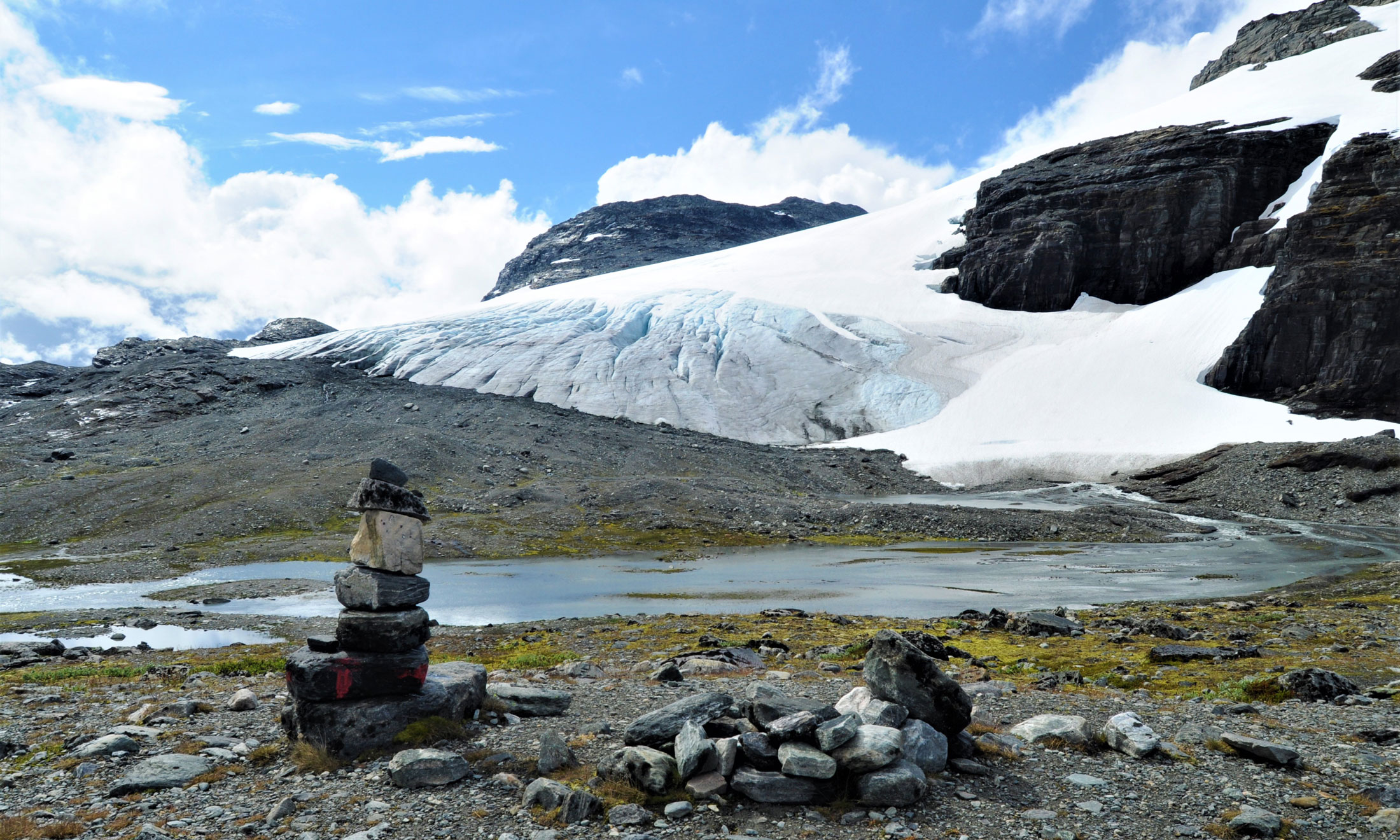
Blaisen Glacier, which flows from the Hardangervidda ice cap near Finse, Norway, with its outlet river in the foreground. Credit: Lee Brown, University of Leeds, UK.
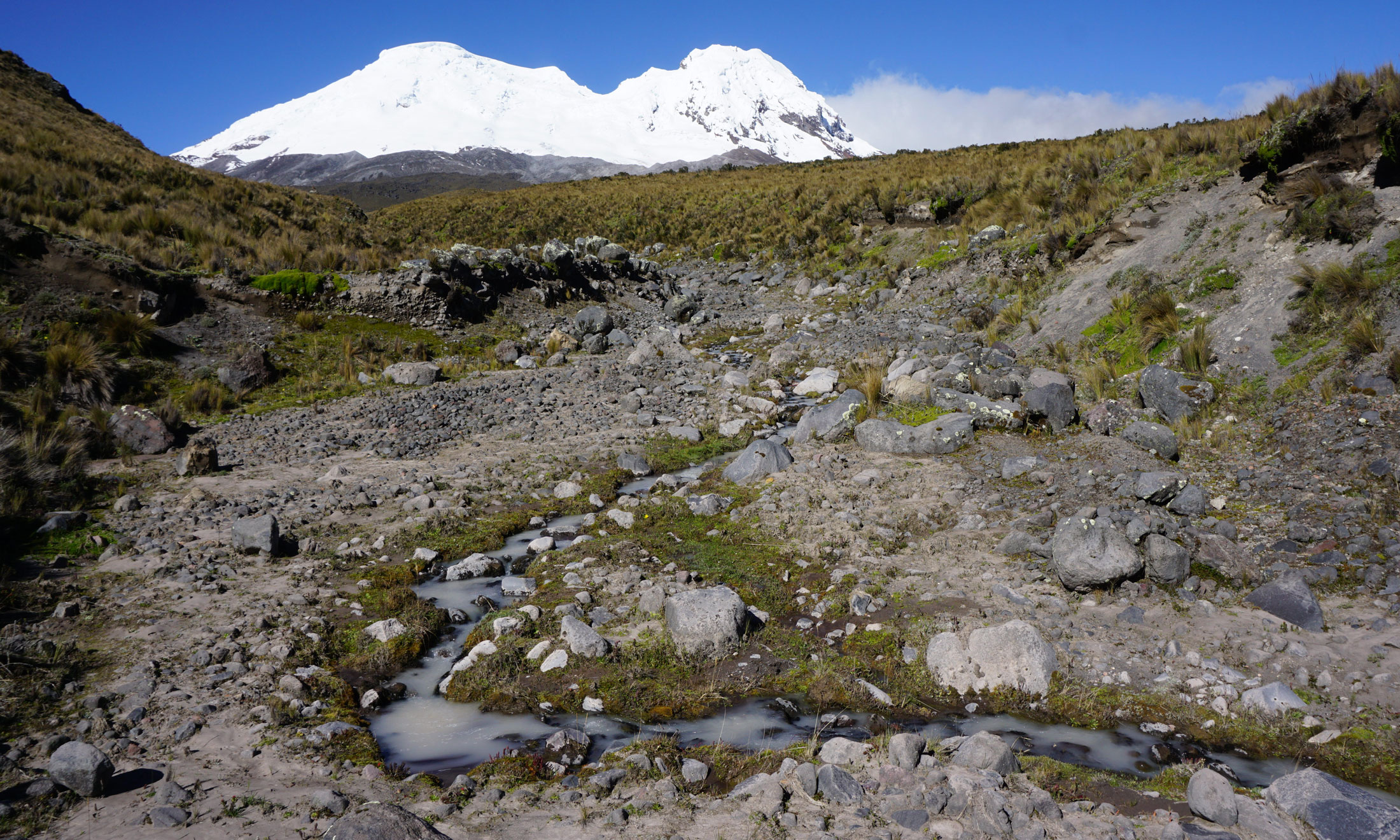
Antisana (volcano) in the northern Andes of Ecuador, with its outlet river in the foreground. Credit: Scott Tiegs, Oakland University, USA.
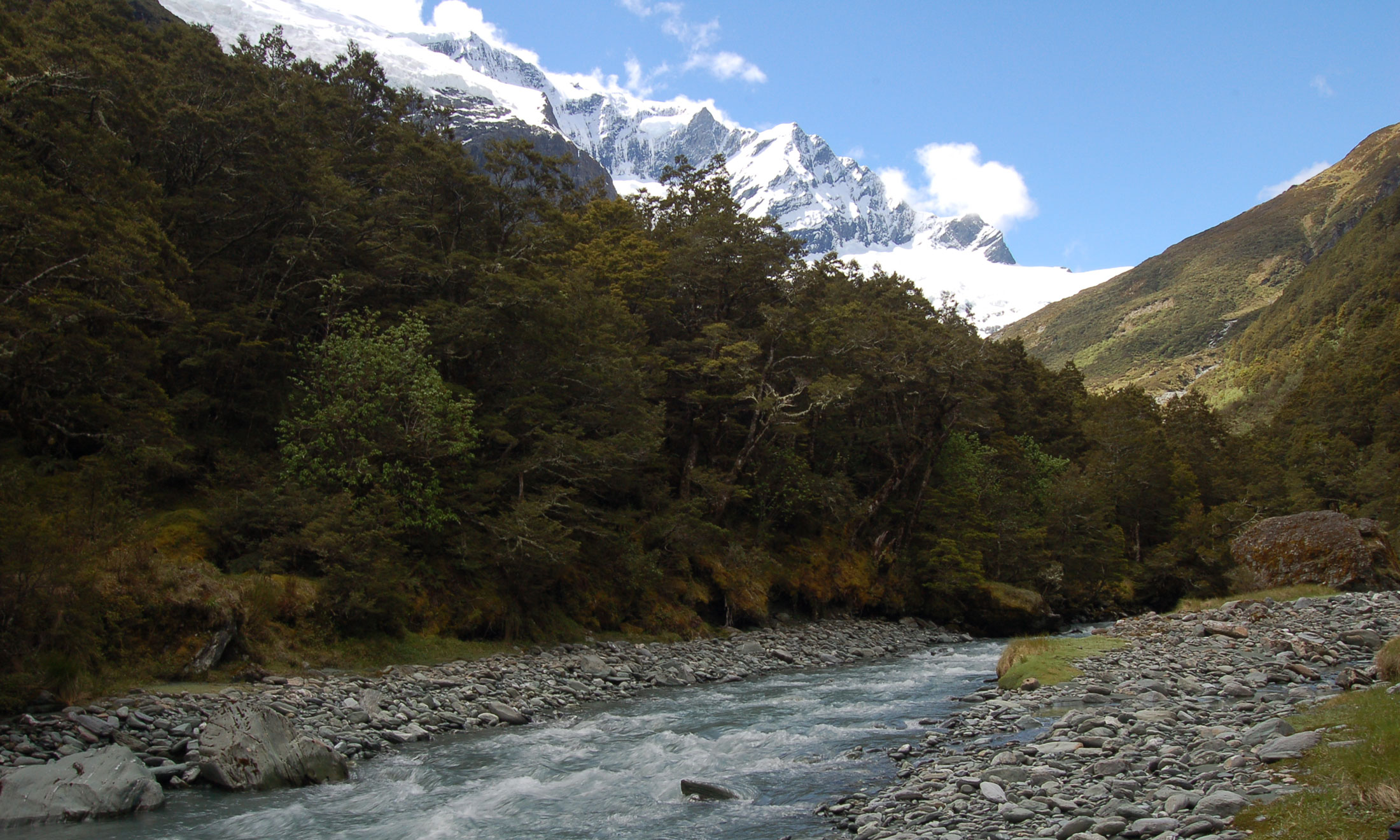
Rob Roy Glacier, New Zealand southern Alps, with its outlet river in the foreground flowing through forest. Credit: Lee Brown, University of Leeds, UK.
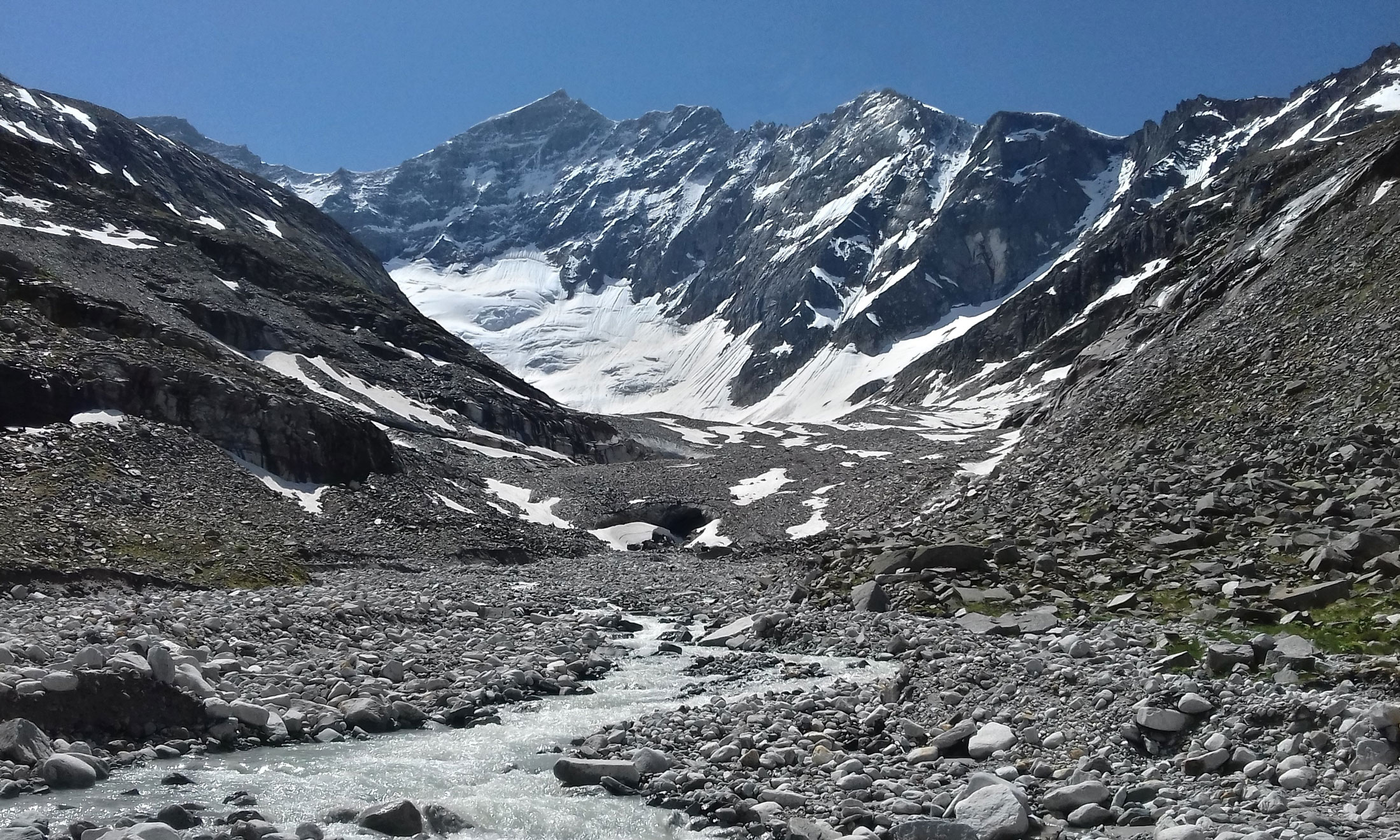
Odenwinkelkees (glacier), Austrian Alps, with its outlet river in the foreground. Credit: Lee Brown, University of Leeds, UK.
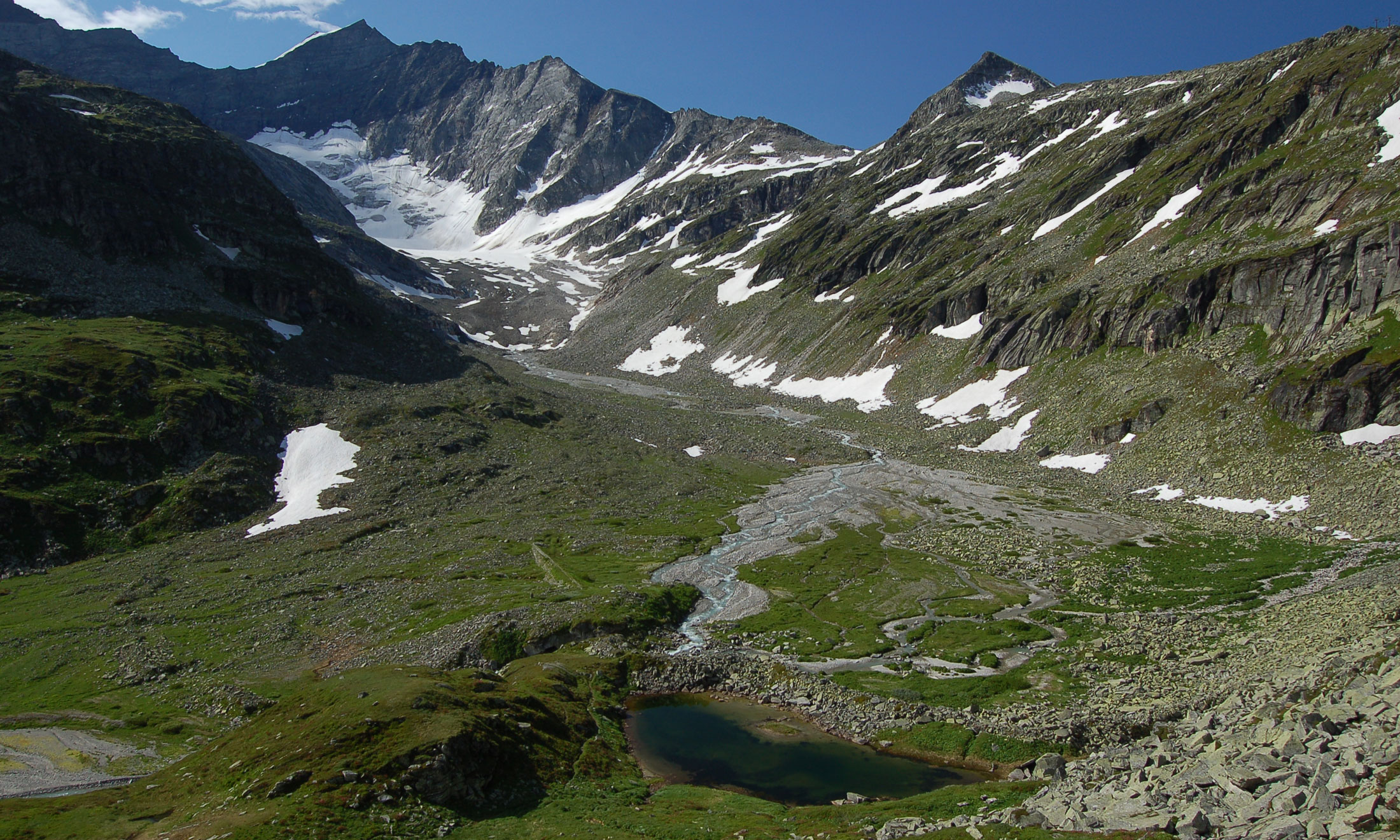
Odenwinkelkees (glacier), Austrian Alps, with its outlet river in the foreground flowing over the Eisboden floodplain. Credit: Lee Brown, University of Leeds, UK.
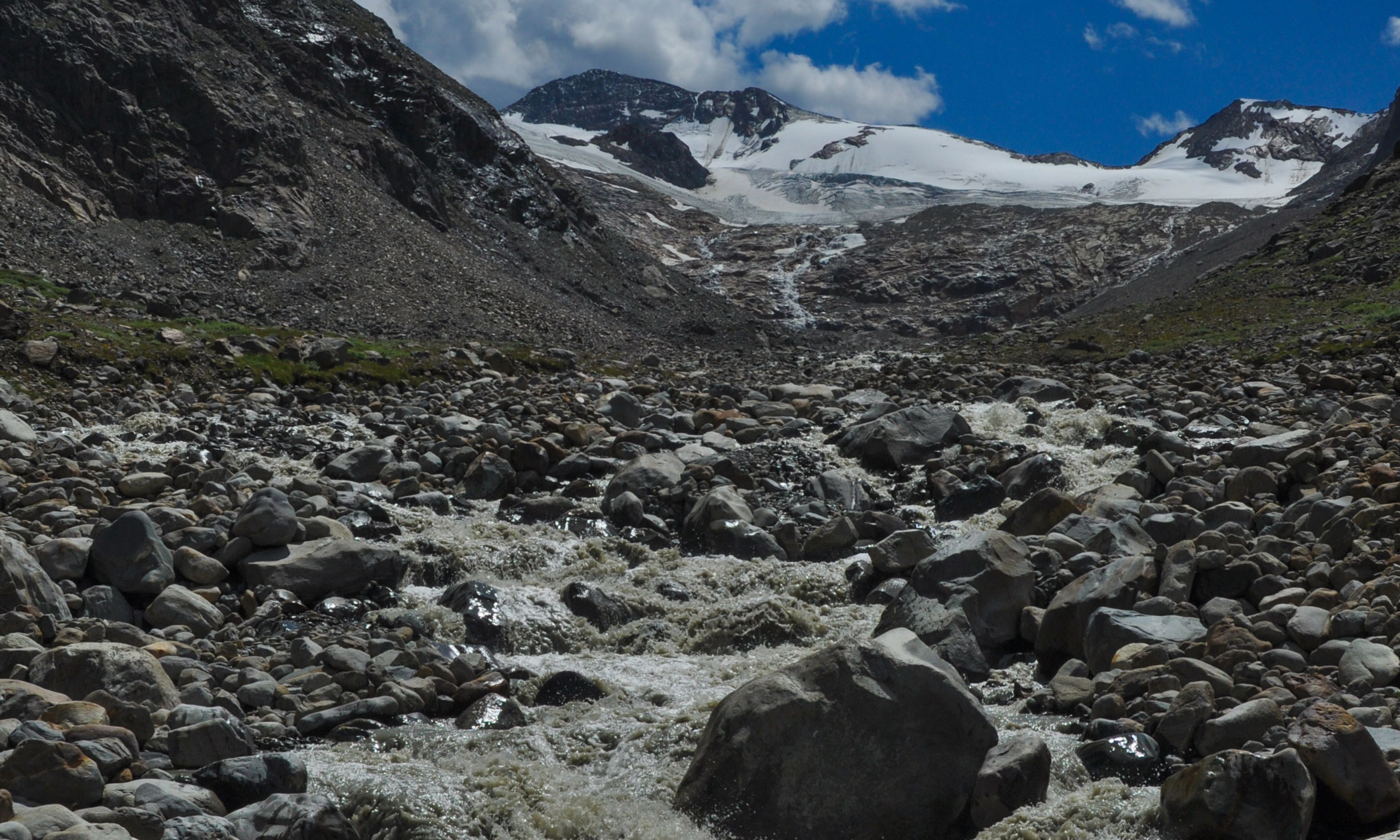
Sulztalferner (glacier), Austrian Alps, with its outlet river in the foreground. Credit: Lee Brown, University of Leeds, UK.
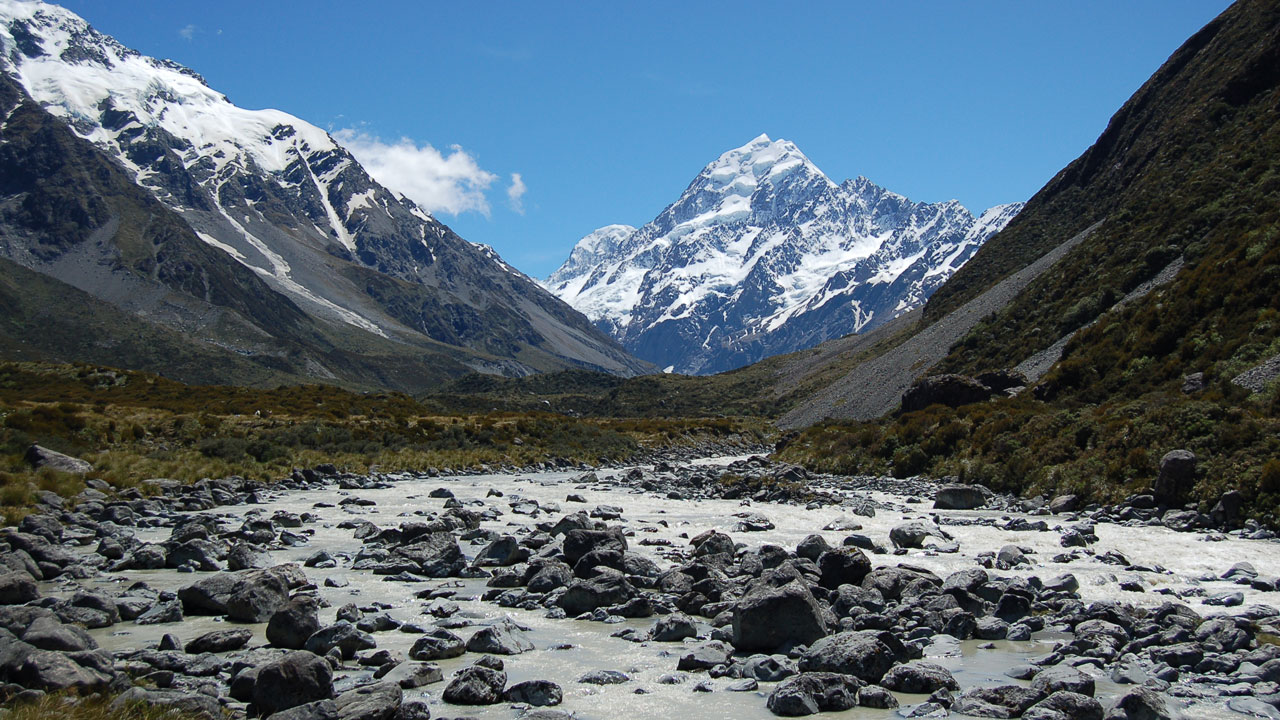
Oakland University Professor Scott Tiegs is a co-author on a new study that examines how glacier loss, driven by global warming, affects glacier-fed river ecosystems. The study was published March 15 in the journal Nature Climate Change.
Tiegs was part of an international team of researchers led by the University of Leeds (United Kingdom) that measured organic matter decomposition rates in mountain rivers in six countries and four continents. The study found that as glaciers melt, the rivers downstream support higher rates of organic matter decomposition, a major process in the global carbon cycle. This discovery could help researchers better predict how river ecosystems will change as mountains continue to lose ice due to global warming.
“We know that global warming is causing glaciers to recede at unprecedented rates worldwide,” said Tiegs, a professor in OU’s Department of Biological Sciences. “We’re trying to better understand how that affects mountain river ecosystem processes such as nutrient and carbon cycling.”
According to Sarah Fell, the study’s lead author, the increases in the rate of organic matter decomposition in mountain rivers can “be expected to lead to more carbon release to the atmosphere,” thus furthering global warming.
“This is an unexpected form of climate feedback, whereby warming drives glacier loss, which in turn rapidly recycles carbon in rivers before it is returned to the atmosphere,” said Fell, a researcher at Leeds' School of Geography.
To measure the decomposition rates at each mountain river site, researchers used a standardized cotton-strip assay developed at Oakland University. The strips were incubated in the rivers for approximately one month, then retrieved and tested to determine the degree to which they were decomposed. The results showed that organic matter decomposed more quickly in rivers that were warmer because they had less water flowing from glaciers.
“We developed this assay here at OU, and it has been really rewarding to see it applied across the planet in these large collaborative studies,” Tiegs said.
The glaciers/regions that were studied were in Austria, Ecuador, France, New Zealand, Norway and the United States. In addition, the study used the facilities of the Finse Alpine Research Centre (Norway), the Obergurgl Alpine Research Centre (Austria), the Design School at the University of Leeds and the School of Life Sciences molecular ecology facilities at the University of Essex (United Kingdom).
The study’s co-authors were Sarah Fell, Lee Brown and Jonathan Carrivick at the University of Leeds; Kate Randall, Kirsty Matthews Nicholass and Alex Dumbrell at the University of Essex; Verónica Crespo-Pérez at Pontifical Catholic University of Ecuador; Sophie Cauvy-Fraunié at INRAE, France; and Eran Hood at University of Alaska Southeast.
Read the full study here.


 March 16, 2021
March 16, 2021